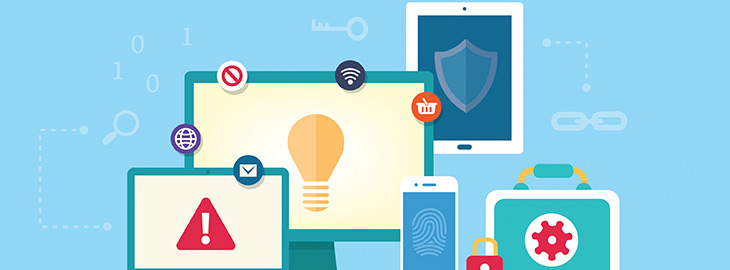
Change is hard—and during the COVID-19 pandemic, it’s happening at breakneck speed. Your employees and business partners need to know now, more than ever before, that they can trust you to be honest and transparent with them. This is the essence of ethical leadership.
We’re standing on shaky ground as the virus sweeps through our nation and upends our economy. People are losing their jobs, their health insurance, and perhaps even their savings. Some are losing loved ones to the novel coronavirus or worried that they, or others, will fall ill.
Buffeted on all sides by calamity, your people need your steady hand. They need you to not only show your trustworthiness with reassuring words and honest assessments of where things stand but to demonstrate ethical behavior, as well.
The importance of ethical leadership has never been greater, demanding superior leadership skills. Are you rising to the challenge?
Why Ethical Leadership Matters
Confidence that you have high ethical standards and that yours is an ethical organization boosts the morale of your personnel. High morale, in turn, helps prevent expensive employee turnover and improve productivity.
Ethical leaders can tell their people during this crisis, “We’re all in this together, and I’ve got your back.” This bond, plus a strong ethical culture can help your business survive the COVID-19 pandemic. Knowing they work for someone who cares about them will have your employees rallying around you, even if they have to take a cut in pay for now. (True role models will reduce their own pay, as well.)
Misinformation abounds about the coronavirus and its effects. Being isolated at home can seem more frightening and confusing. Knowing that their leaders will act in an ethical manner no matter what happens can provide your employees with the confidence they need to weather this storm. Then, after it’s over, you may find that they are more committed to you and your enterprise than before.
Ethical Leadership: The Building Blocks
The Center for Ethical Leadership (CEL) lists four qualities that it deems essential to ethical leadership:
- Values: What are the core values driving you and your company? Leadership begins with these fundamental beliefs, for they shape everything you say and do personally and professionally, as well as your business practices, goals, and decision-making. Examples of personal “core values” include integrity, authenticity, and compassion; professional core values might be creativity, customer service, or social responsibility.
- Vision: To what do you aspire for yourself and your organization? Without lofty goals, we cannot attain new heights. Do you hope to make a positive impact on the world? To solve a problem people are experiencing? To foster a tight-knit “family” atmosphere in your company?
- Voice: When you can articulate your vision and values in authentic, clear, and simple terms, you’ll be able to inspire others to follow your lead.
- Virtue: The CEL describes the importance of virtue in leadership as follows: Virtue is a blend of principle, sensitivity to relationships, and commitment to the common good. Virtue distinguishes Gandhi from Hitler, Martin Luther King, Jr., from Stalin. Virtue distinguishes ethical leadership, which will transform society, from leadership which is merely effective.
Our own ethical values
At Reciprocity, we foster an ethical culture that permeates our organization from the very top. Our founder, Ken Lynch, established our company and our ZenGRC software out of a desire to help enterprises improve how they protect data security and privacy.
The name “Reciprocity” reflects one of our own core values: strong, mutual, trust-based relationships with our clients, customers, and employees. We invite you to view a case study from one company that values that relationship and to start your own with us.
Crisis time is also a time of high risk when compliance is more difficult to achieve but also more critical. We’re all in this together, and we’re here to help you succeed.


